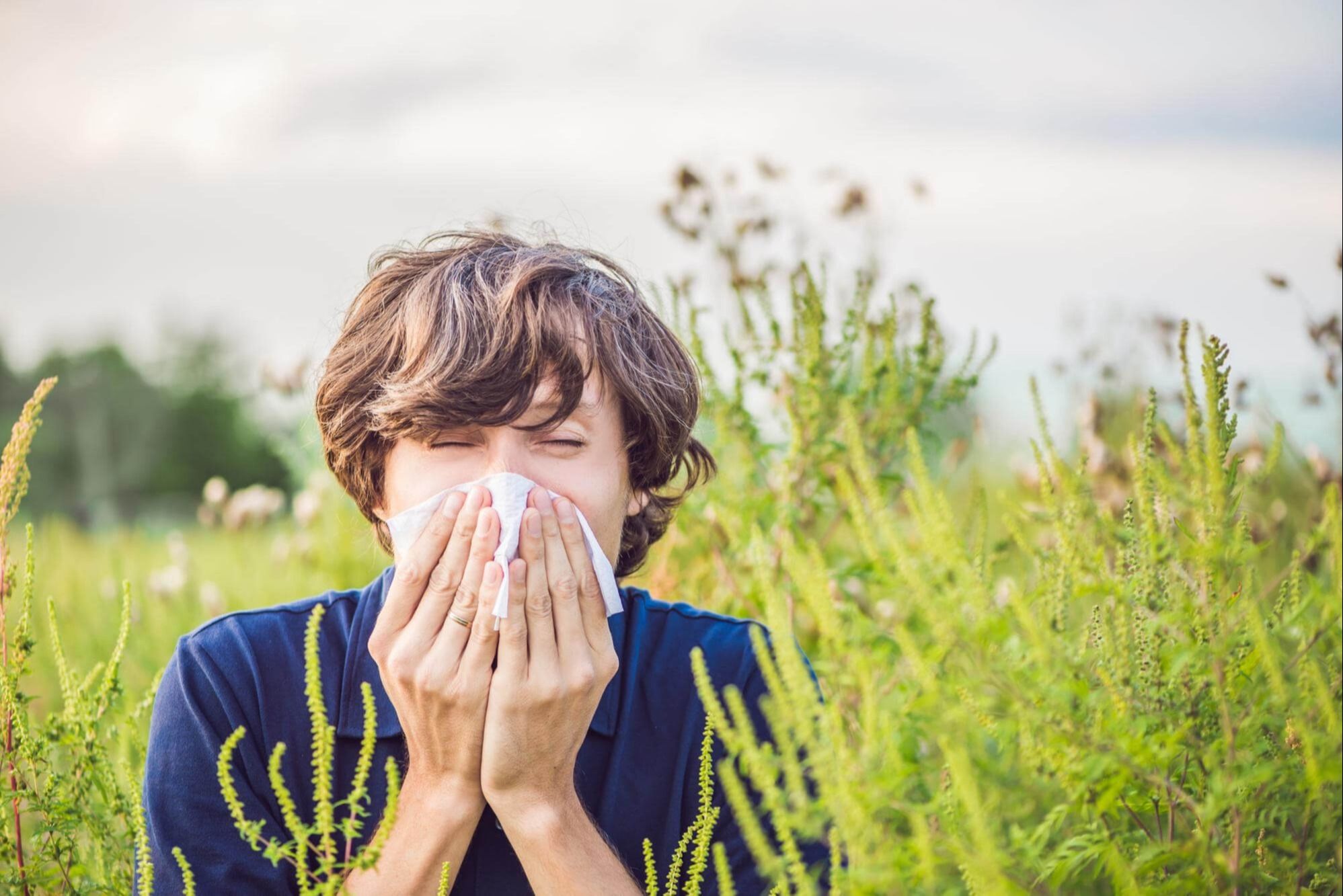Ambrosia allergy: how to avoid unpleasant symptoms


Irina Makarova
Allergy to ragweed is becoming an increasingly common problem among the population. In this article, we will discuss the causes, symptoms, and methods of treating ragweed allergy, as well as provide recommendations for prevention.
What is ragweed and why does it cause allergies?
Ragweed is a plant that actively blooms in a certain season, usually from mid-August to October. During this time, ragweed releases a large amount of pollen, which can cause allergic reactions in people with a predisposition to allergies. It is important to know when ragweed blooming begins and ends in order to take timely preventive measures.
Causes of ragweed allergy
The main cause of ragweed allergy is pollen from this plant, which contains allergens. They can cause allergic reactions in sensitive individuals, such as itching, hives, runny nose, sneezing, and even bronchospasm.
Genetic predisposition also plays an important role in the development of ragweed allergy. If there is a history of allergy in your family, the likelihood of developing ragweed allergy increases.
Symptoms of ragweed allergy

- Symptoms of ragweed allergy can appear on the skin in the form of hives, itching, and redness. This is especially relevant for children, whose skin is even more sensitive.
- Respiratory symptoms of ragweed allergy include runny nose, nasal congestion, sneezing, and coughing. In adults or children, difficulty breathing and bronchospasm may occur, which requires immediate medical attention.
- Ragweed allergy can also manifest symptoms in the eyes, such as tearing, itching, redness, and swelling of the eyelids.
How to diagnose an allergy to ragweed?
To determine if ragweed is causing an allergy, a doctor may conduct allergy tests, such as skin tests. During a skin test, the doctor applies an extract of ragweed pollen to the patient's skin and observes the reaction. Another diagnostic method is a blood test for antibodies to ragweed allergens. This method can detect the presence of IgE class antibodies specific to ragweed allergens.
Treatment for ragweed allergy

Anti-allergic medications
Treatment for ragweed allergy includes the use of anti-allergic medications, such as antihistamine tablets (loratadine, cetirizine, fexofenadine), eye drops (sodium cromoglicate, olopatadine), and nasal sprays (fluticasone, mometasone). They help to manage allergy symptoms and alleviate the patient's condition.
Immunotherapy
Immunotherapy is another method of treating ragweed allergy, which involves gradually introducing the allergen to the patient to increase their immune resistance to ragweed. This method can be effective in preventing allergic reactions in the future and reducing dependence on anti-allergic drugs.
Alternative treatment methods
Some patients may turn to alternative treatment methods such as homeopathy, herbal medicine or acupuncture. However, before using any alternative treatment method, it is essential to consult with an allergist.
Prevention of ragweed allergy

The basis of allergy prevention for ragweed is to avoid contact with the pollen of this plant. Keep an eye on pollen forecasts, close windows at home and in the car during the ragweed pollen season, and try to limit outdoor time during this period.
Strengthening the immune system can also help prevent ragweed allergy. Maintain a healthy lifestyle, eat properly, avoid stress, and get enough sleep.
In conclusion, ragweed allergy is a common and unpleasant disease, but timely consultation with an allergist, proper treatment, and prevention will help you reduce the risk of allergic reactions and ease symptoms during the ragweed pollen season. Be attentive to your health and do not forget about preventive measures to successfully fight ragweed allergy and enjoy a safe and comfortable life.
New materials
Popular Articles
We recommend reading
Contact us in the Contact Us section to ask questions, offer ideas, or for more information about our allergy resource.
Our articles are your trusted source of allergy knowledge. Learn how to make life with allergic reactions easier on our specialized portal.
©
Lechenie-Allergii.com. All rights reserved.
© Lechenie-Allergii.com. All rights reserved.
The information on this site is for informational purposes only and is not a substitute for professional medical advice. We recommend consulting with qualified medical professionals for accurate information and advice.
 English
English  Українська
Українська  Русский
Русский 









